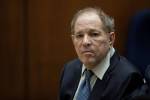EDITORIAL: Judge rightly unseals HOA fraud case documents
Transparency always serves the public interest better than government secrecy -- even if the openness comes years late.
As reported by the Review-Journal's Jeff German, a federal judge on Monday unsealed documents that finally will shed some light on the government investigation into local homeowner association fraud and corruption that dates back more than a decade.
That decision came just days after former construction company boss Leon Benzer, the leader of the scheme to take over Las Vegas-area HOA boards and initiate construction defect claims, was sentenced to 15½ years in federal prison. A total of 42 defendants either pleaded guilty or were convicted at trial, and Benzer's sentencing effectively closed the case.
U.S. Magistrate Judge George Foley Jr. released approximately three dozen secretly filed documents covered under the order sought by the Las Vegas Review-Journal and its attorney, Maggie McLetchie, who hailed the overdue move as "an important step forward for transparency," not only in the HOA case but for the courts in general.
Ms. McLetchie noted that some of the documents were filed under seal with no public notice. "There were documents we didn't even know were sealed. They were completely cloaked from public view."
Judge Foley merits applause for his decision, but he still has work to do. The Review-Journal has also asked the judge to dissolve two protective orders he signed barring disclosure of massive amounts of HOA evidence, including many documents not filed with the court. Mr. German noted that prosecutors oppose dissolving the orders, especially one regarding a leak investigation in the case. Justice Department prosecutor Thomas Hall told Judge Foley last week that the leak investigation delved into the personal and romantic relationships of public officials who have not been charged criminally or disciplined administratively.
As Ms. McLetchie argued, the public has a right to know who the officials were and what they were suspected of doing. If government officials had full license to block the release of records that could embarrass them, the public would never know what their tax-funded agencies were up to.
Taxpayers have to see how their courts are functioning to trust that justice is being administered fairly, free of favoritism. Federal prosecutors clearly want to shield themselves and their friends from scrutiny. We're just supposed to take them at their word that there's nothing to see here? Not a chance. The only way the public can be sure that this costly case wasn't compromised by cronyism is to see the records.
Judge Foley's move to unseal dozens of documents is a good first step. We hope this sends a message to U.S. Attorney Daniel Bogden that his office and the federal courts need to be more open. And going forward, transparency must come during these cases, not when they've reached the finish line.























